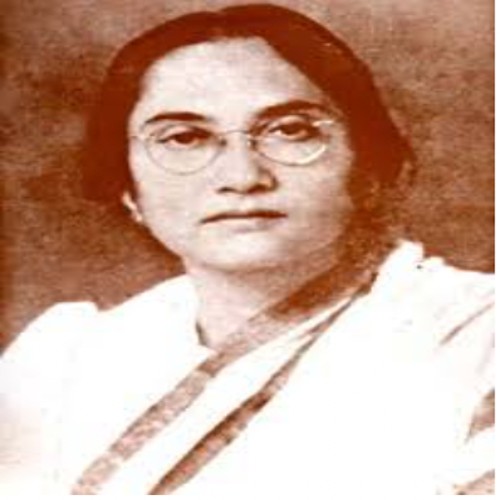Early Life
Described as a woman of indomitable spirit, Leela Roy was born on 2 October 1900 at Goalpara, Assam. She completed her schooling at Eden High School in Dhaka. Subsequently her academic excellence earned her a scholarship for completing a B.A. in English at Bethune College, Calcutta where she was a recipient of a gold medal. She then graduated with a Master’s degree from the University of Dhaka becoming the University’s first female graduate. Roy’s achievement prompted the University to set up special evening classes for women.
Role in India’s Independence Movement
A staunch feminist, she encouraged and promoted women’s participation in social and political movements including the Indian freedom movement. Roy worked towards establishing educational institutions for women. She founded ‘Deepali Sangha’ in 1923, an organisation that educated and trained women on social and political issues, leadership skills and physical fitness.
She criticised leaders such as Mahatma Gandhi for propagating a limited role for women in public life- restricted to managing domestic responsibilities. She wanted women’s role in the freedom movement to go beyond just the picketing of liquor and other shops, and weaving khadi.
To further encourage women’s participation in public life, in 1931 Roy established ‘Jayashree’ a magazine that functioned as a forum for discussions and debates around nationalism and social issues.
Roy seemed to have engaged with both the revolutionary and moderate stands of India’s political landscape. In 1926, she joined the ‘Shree Sangha‘, a revolutionary organisation led by Hemchandra Ghosh and Anil Roy, The Shree Sangha operated primarily in Dhaka- it mobilized youth groups and engaged in community service work. The Indian National Congress appeared to have acknowledged Roy’s contributions and in 1928 invited her as a delegate to the Congress Session at Calcutta. At this Session, she presented a paper on the History of the Women’s movement in Bengal.
Inspired by Subhas Chandra Bose, Roy also became a member of the central executive body of the Forward Bloc– an organisation founded by Bose. Adding another role to her illustrious political career, she took on an editorial position in the ‘Forward Bloc Weekly’.
Contribution to Constitution Making
She was elected to the Constituent Assembly from Bengal on 9 December 1946. However, she resigned a few months later in protest against the partition of India.
Later Contributions
Roy continued contributing to many social and political causes after she resigned from the Constituent Assembly.
In 1946, Roy helped the victims of the tragic Kolkata riots and built the National Service Institute for Rescue and Relief Work at Noakhali. She worked ardently for the rights of refugees.
Roy’s prolific political career continued into independent India. She became the Chairwoman of the party formed by merging the Forward Bloc and the Praja Socialist Party in 1960. She retired from active politics in 1962.
She passed away on 11 June 1970.
- Roy resigned from the Constituent Assembly to protest the partition of India.
1. Flaming Leela Roy – Agamoni Lahari Bijoy Kumar Nag Translated by Sumitra Dutta
2. Jayashree and the Nationalist-Feminist Women

